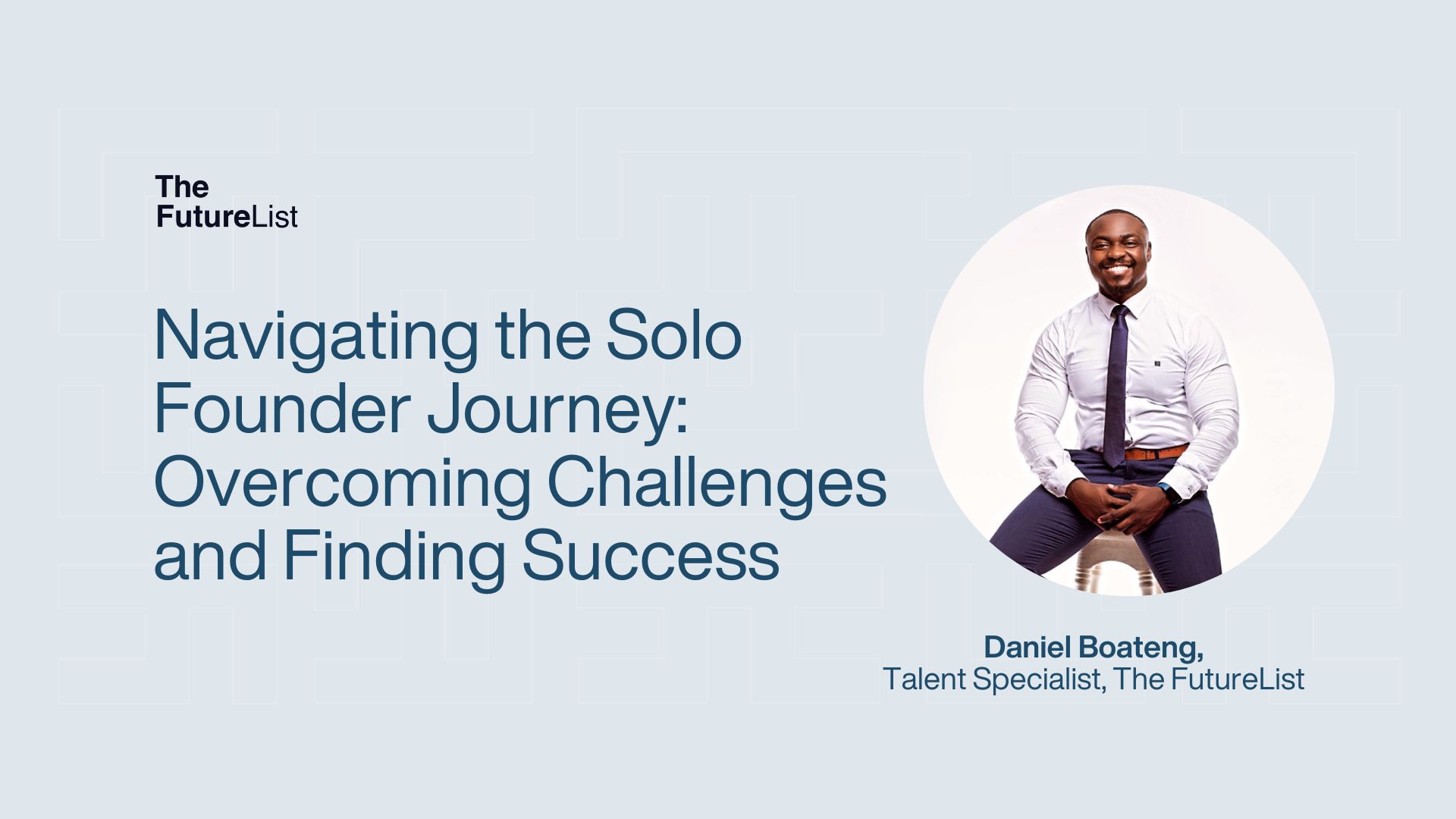
Navigating the Solo Founder Journey: Overcoming Challenges and Finding Success
Embarking on the entrepreneurial journey as a solo founder can feel like stepping into a vast and uncertain wilderness. With the weight of every decision resting squarely on your shoulders and the daunting task of wearing multiple hats, it’s easy to feel overwhelmed. Yet, amidst the challenges lie stories of remarkable triumphs—tales of individuals who dared to venture alone and emerged victorious. In this article, we’ll explore the common challenges faced by solo founders, debunk misconceptions, and weave in inspiring success stories to illustrate that the path of the solo founder is not only navigable but can lead to extraordinary success.
The Challenges of Going Solo
Decision-Making Dilemmas
Solo founders bear the weight of every decision, from strategic pivots to day-to-day operations. Without the input and perspective of a co-founder, making these decisions can feel overwhelming. To overcome this challenge, solo founders should seek advice from mentors, industry experts, and trusted advisors. Building a network of support can provide valuable insights and help validate decisions.
Limited Resources
Unlike startups with multiple founders, solo founders often have limited resources at their disposal. Whether it’s financial constraints, time limitations, or a lack of manpower, operating with scarcity can hinder progress. To mitigate this challenge, solo founders should focus on prioritising tasks that yield the highest return on investment. Additionally, outsourcing non-core activities or leveraging technology can help maximise efficiency.
Lack of Diverse Skill Sets
Successful startups thrive on diversity of skills and expertise. However, solo founders may find themselves lacking in certain areas such as marketing, product development, or finance. To address this gap, solo founders should invest in continuous learning and skill development. Seeking online courses, workshops, or joining entrepreneurial communities can help acquire the necessary skills to drive the business forward.
Loneliness and Stress
Entrepreneurship can be a solitary journey, and solo founders often experience feelings of isolation and stress. Without a co-founder to share the highs and lows, managing the emotional rollercoaster of entrepreneurship can be challenging. To combat loneliness and stress, solo founders should prioritise self-care and seek support from peers, mentors, and mental health professionals. Building a strong support network can provide encouragement, guidance, and perspective during tough times.
Difficulty in Delegation
Solo founders may struggle to delegate tasks effectively, leading to burnout and inefficiency. With no one else to rely on, the temptation to micromanage every aspect of the business can be strong. To overcome this challenge, solo founders should learn to trust others and empower team members to take ownership of their responsibilities. Delegating tasks not only frees up time but also fosters a culture of collaboration and growth within the organisation.
Limited Networking Opportunities
Networking plays a crucial role in the success of any startup, but solo founders may find it challenging to expand their network without a co-founder’s connections. To overcome this obstacle, solo founders should actively seek out networking opportunities through industry events, conferences, and online communities. Building genuine relationships with peers, mentors, and potential collaborators can open doors to new opportunities and partnerships.
Here are some exciting stories from Solo Founders who made it work!
Sara Blakely’s journey from struggling entrepreneur to self-made billionaire is a testament to persistence and unwavering belief in her vision. With just $5,000 in savings and a bold idea, Blakely launched Spanx, revolutionizing the world of women’s undergarments and defying skeptics along the way. Her relentless pursuit of her vision and refusal to accept defeat are key lessons for solo founders.
Derek Sivers journey from solo entrepreneur to music industry disruptor is a story of resilience and customer focus. With little more than a passion for music and a drive to support independent artists, Sivers built CD Baby from the ground up, transforming it into a multimillion-dollar empire. His unwavering commitment to providing value to his customers and willingness to adapt to changing circumstances are invaluable lessons for solo founders.
In conclusion, while the solo founder journey presents unique challenges, it’s also rife with opportunities for remarkable success. Sara Blakely and Derek Sivers stand as testament to the power of persistence, resilience, and unwavering belief in one’s vision. By drawing inspiration from their stories and embracing the lessons they offer, solo founders can navigate the hurdles they face and chart a course towards their own extraordinary triumphs. So, to all the solo founders embarking on this journey: dare to dream, persevere against all odds, and let your passion guide you to greatness.
At The FutureList, we understand the importance of building a strong tech team that aligns with your specific goals and requirements. Our dedicated team of experts and talent partners are here to provide personalised advisory sessions to assist you in assembling a top-notch tech team through navigating the complexities of talent acquisition and creating a dynamic team that drives your organisation’s success. Don’t hesitate to reach out to schedule an advisory call here.
Get innovation insights from The FutureList weekly. Subscribe to our newsletter here
Categories
- Agritech
- Artificial Intelligence
- Biotech
- Blockchain
- Climate Tech
- Data Infrastructure
- Edtech
- Events
- Fashion
- Fintech
- Healthtech
- Infrastructure
- Innovation Memos
- Innovation Scout Program
- Insight
- Insurtech
- Machine Learning
- Martech
- Mobility
- Music and Media
- Partner Offers
- Perks
- Procurement
- Proptech
- Retailtech
- Ridehailing
- Ridesharing
- Robotics
- Space Aviation
- Supply Chain
- Talent
- Telecoms
- Uncategorized
- Venture Capital
- Wastetech
- Women In Tech
Recent Posts
- How AI Surveillance is Shaping Public Safety in Smart Cities
- Innovation Memo with Zencey: Bringing Equitable Healthcare to Africa
- Inside the Software Model Running Modern Harbours
- The Formula for Future Speed: Data-Driven Performance in Racing
- Leveraging Next-Gen Endoscopic Interventions and Innovations for Healthcare